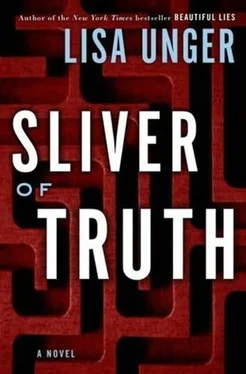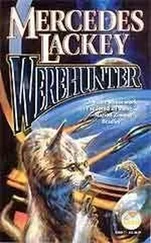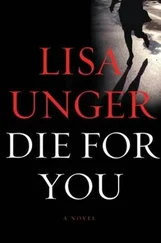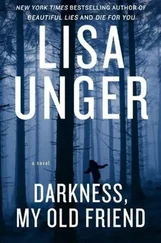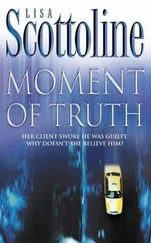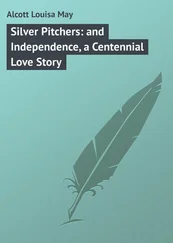“This is a bad idea,” he said, shaking his head. My heart sank; it looked as if he might be clamming up on me. His face had gone still. He’d pressed his mouth back into a thin line. I gave him an understanding smile. I wasn’t sure what to say to convince him to talk, so I said nothing.
“You seem like a nice girl,” he said, holding my eyes briefly. “I don’t want…” He let his voice trail off and didn’t pick up the sentence again. I closed my eyes for a second, drew in a breath, and said the only thing I could think of.
“Please.”
He looked at me sadly. Gave me a quick nod.
“I haven’t thought about that night in a long time,” he told me, but for some reason I didn’t believe him. I suspected he’d thought about that night a lot, and maybe this was the first time in years he’d been able to talk about it. Maybe he needed to talk about it. Maybe that’s why he changed his mind.
“ ’Course, it’s not the kind of thing you forget, either. It stays with you, even when it’s not on your mind directly. I busted an arm at work about five years ago, been on disability ever since. The arm healed but it’s never been the same. Some things are like that. After they happen, nothing’s right again.” I could definitely relate to that.
He didn’t seem quite as menacing as he had on first glance. He seemed softer and kinder now, more beaten down than angry. He didn’t say anything else for a minute, just stared into his cup. I listened to the clock ticking above the sink and waited. Finally:
“We’d been over there, at Race and Lana’s, for supper. We always spent the holidays together,” he said, looking at the tabletop. His voice seemed hoarse, as if it had been a while since he’d used it so much. I wondered if he’d feel unburdened by the telling of this. Or if it would be like exhuming a body, an unholy dredging of something better left to rest.
It struck me again, as it had when I first read the article, that I had never heard of Nicholas Smiley or his family. Neither Max, my father, nor my grandparents had ever mentioned this cousin who’d apparently grown up with Max and Ben, living just down the street. I wondered if there was any end to the layers of secrets and lies.
“It hadn’t been a very good night,” he said, looking at me shyly. “Race didn’t show up for dinner and Lana was drunk and mad as hell. Ranting about her shit life.”
He looked down at his teacup again and I could see that his hand was shaking just slightly. For some reason, the sight of that made my heart rate rise.
“Race was a bastard. Beat the crap out of Lana and Max, ran around on her. Everyone knew it.” He spoke in short, quick-fire sentences, as if he had to get the words out before a timer went off. But there was something rhythmic, almost metered, about the way he spoke. I felt hypnotized.
He must have seen something on my face. Any good interviewer knows to keep judgment out of her voice, and I’d always been okay at that. It was keeping it off my face that gave me trouble.
“I don’t know why no one ever did anything,” he said, as though I’d asked the question I’d been thinking. “Been plenty of years to regret that. I guess in those days you just didn’t interfere between a man and his family.”
I nodded my understanding and he went on.
“Anyway, we left early. Lana had, like I said, been ranting and Max had barely said a word the whole night. He got that way sometimes, like he was trying to be invisible. Not that I blamed him; it was like living in the valley between two active volcanoes. You never knew which one of them was gonna blow.”
“Lana was abusive to Max as well?”
“Oh, yeah,” he said. “She got her licks in.”
Max had always spoken of his mother as if she were the Madonna and Mother Teresa wrapped into one. I’d heard him talk only of her beauty, of her kindness, of her strength.
“You look a lot like her. Did you know that?” Nicholas said to me.
“No,” I said. “I didn’t.” I hadn’t wanted that information, didn’t even know what to do with it. Suddenly I regretted coming.
He shrugged. “Compared to Race, she wasn’t so bad. But that kid never knew where it was coming from. Never knew if he was going to get stroked or slapped.”
I didn’t know what to say, thinking about this abused little boy who was not my uncle but my father. I waited for emotion to bloom in my chest, but instead it felt as if it was filled with lead, heavy and numb. I looked into my teacup and saw that the milk had curdled slightly.
“Max and I got walkie-talkies that year. But in my parents’ rush to get out of there, we’d left mine under the tree by mistake. I wanted it, couldn’t think or talk about anything else, drove my parents crazy. Tomorrow, they promised. But to a kid tomorrow seems like forever. I waited for them to go to bed, then I pulled on my coat and boots and snuck out of the house.”
I could picture it. The block dark, but illuminated by Christmas lights on the houses and from the trees glimmering inside, snow on the ground. I could see him trundling up the street in his coat and pajamas. I could smell the cold winter air, hear the cars on the busy road that ran perpendicular to their block.
“If Max was sixteen that year, I was fourteen. But Max was huge for his age. Not quite as big as Uncle Race but getting there. I figured Race wouldn’t be pushing Max around much longer. Still I looked for Race’s car in the driveway. He been home, I’d have gone right back to my house.”
I could tell he was back there on that night; his eyes had taken on a kind of shine and he looked right through me. I kept quiet.
“I remember that the air seemed different, like the night already knew something bad had happened. I didn’t go to the door. I went to Max’s bedroom window, but he wasn’t in there. I could hear the television up loud, so I went around to the living-room window.”
He stopped and released a sigh, as if the memory still frightened him all these years later. He put his head in his hands, then lifted it again. “That’s where I saw Aunt Lana,” he said. “I only recognized her by the outfit she’d had on at dinner. Her face was a pulp; her clothes were soaked with blood.”
“But Race wasn’t there?” I asked.
He looked up at me. “I told you, his car wasn’t in the drive.”
“He could have come home, killed her, and left again,” I said. “He could have been parked on the street.”
“No,” he answered.
“How can you be sure?”
He looked at me with something like pity in his eyes. I guess I sounded as desperate as I was feeling at that moment.
“I saw him standing over her. There was blood on his fists, on his shirt, and on his face. His eyes were glazed over and he was smiling, breathing hard like a prizefighter.”
“Who?” I asked him, horrified.
He shook his head at me and tears fell down his cheeks and into his beard. He shook his head again and opened his mouth but no words came out.
“Who?” I asked again, leaning forward in my chair.
“Max,” he whispered.
I COULDN’T HAVE been more shocked or devastated if he’d hit me in the head with a crowbar. I wished he had; I wished I could just pass out and get amnesia, forget I ever heard anything he’d told me. I hated myself for being so stubborn and curious and for being there at all. I was having trouble getting a full breath of air.
“No,” I said. “You were so young. It was dark and you were terrified by seeing your aunt like that.”
He stared at me. “I know what I saw,” he said softly. “Won’t ever forget.”
“Then why didn’t you say anything? You let an innocent man die in jail,” I said.
“He turned around and saw me in the window. He wasn’t the Max I knew. He was…a monster. Those dead, empty eyes on me-I knew if I ever breathed a word, he’d rip me in two. I ran and waited all night for that devil to come and turn my face into hamburger. But he didn’t. The next day Race was arrested; Lana died a few weeks later in her coma. Max went to live with Bennie’s parents.”
Читать дальше
